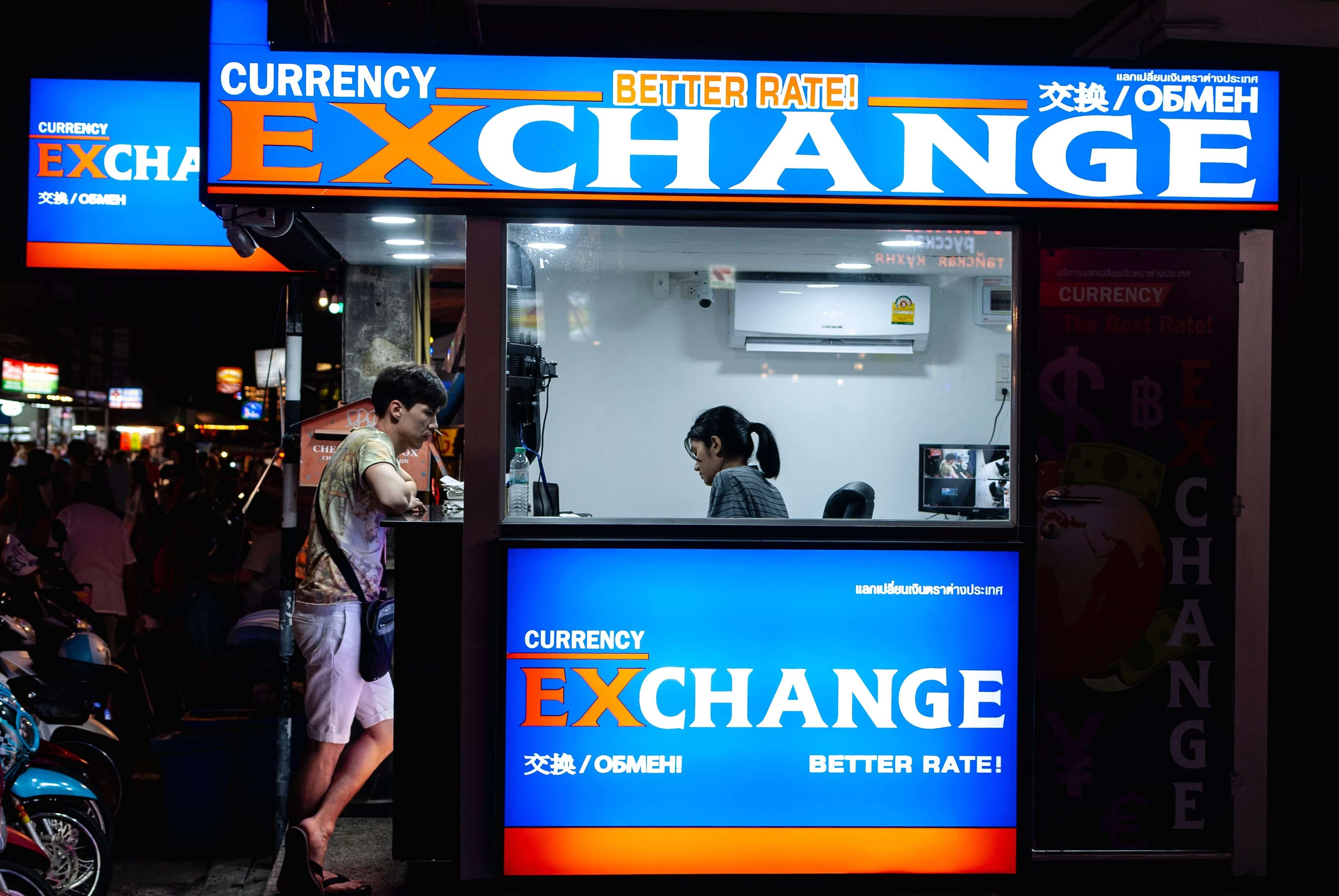Due to the numerous issues faced by ICOs, Initial Exchange Offerings (IEOs) have slowly begun to present a more appealing option for startups and investors. This is due to the fact that they have a number of improvements and benefits over the traditional method of crypto funding.
In this article, we will be exploring what IEOs are, how they work and examples of companies that have successfully undergone an IEO.

Initial Exchange Offering (IEO)
IEOs are very similar in nature to ICOs, in the sense that they still offer their investors cryptographic tokens in return for their support and the method of fundraising is centered around crowdfunding.
The key difference is the fact that rather than the blockchain project setting up the sale and appealing to potential investors directly during the sale, the IEO will have an intermediary (generally a crypto exchange) who will help to conduct the sale.
The increase in the number of projects that are launching through IEOs has led to many exchanges creating “launchpads” on which to catapult blockchain projects to better success.
This has allowed a number of crypto tokens to be offered to users in a more uniform and standard manner.
Because of the way the process is carried out, IEOs are a form of agreement between the exchange itself and the cryptocurrency project. This increased level of accountability that stems from an exchange not wanting to be associated with scam projects helps to increase the reliability of IEOs.
Exchanges will also audit IEOs before officially allowing them to launch. This will involve analysis of the platform’s technology and reports based on the potential of the project, they will also completely manage the sale on the exchange.
An example of a scam ICO can be found in the case of Modern Technology, a Vietnamese startup that raised over $660 Million from over 32,000 individuals during their ICO.
Shortly after receiving this level of funding, they fled the country and their offices, leaving a number of unhappy, out of pocket investors in their wake.
The exchanges mainly benefit from these arrangements through the deriding of listing fees and the IEOs of popular projects can drive a large amount of traffic to the website of the exchange, leading to more overall use.
Furthermore, they may be able to generate long-term custom by individuals who are supportive of IEOs or were simply impressed by the large number of services the exchange is providing.
There are also benefits for the investors and the blockchain projects themselves. Firstly, the projects themselves can feel secure in the knowledge that they are less likely to be viewed as a scam operation, due to the fact that they are being backed by an exchange who will have announced their due diligence on the listing.
The projects also benefit, because some exchanges have a very high number of users who will view their IEO, leaving a large potential market to appeal to. This makes expensive marketing campaigns almost redundant.
The investors themselves reap the rewards of this procedure by having multiple methods for payment during the IEO on the platform, such as fiat currencies, Bitcoin and Altcoins, as well as having immediate liquidity with their investment.
Despite the increased level of trust surrounding projects that are offered through IEOs, investors still cannot be completely sure of the legitimacy of a project being advertised on an exchange and are advised to proceed with caution, to avoid issues such as the issue with Quadriga CX where they have recently been the subject of legal proceedings relating to the loss of $140 Million worth of cryptocurrency. It was also reported that the company used fake bank accounts in an effort to run an “insider trading operation”.
Additionally, when the Securities and Exchange Commission in the United States recently released their guidelines for cryptocurrency projects, any hopes for clarity on some of the key questions pertaining to IEOs have been missed, such as how startups operating outside of the USA are being affected. If you would like to view the guidelines in depth, the full document can be accessed in this article.
Examples of Initial Exchange Offerings:
A large amount of the more popular cryptocurrency exchanges are offering platforms for IEO projects to host their sale. Below, you can see examples of cryptocurrency exchanges and their IEOs.
- Binance: Binance Launchpad
- Bittrex: Bittrex International IEO
- BitMax: BitMax Launchpad
- Huobi: Huobi Prime
- KuCoin: KuCpon Spotlight
- OKEx: OKEx IEO
Binance Launchpad is experiencing a good amount of success with their IEOs, having recently announced that they will be offering their fourth token of the year. It has been reported that their new project, Matic Network which seeks to develop scalable and instant transactions along the blockchain.
It has been reported that the launch will officially take place on the 24th of April, 2019 at 08:00 Coordinated Universal Time.
One of the most well known IEOs was hosted by Binance Launchpad, when earlier this year, Binance Launchpad hosted the offering for BitTorrent’s token, BTT.
The launch was an incredible success, with all of the available tokens being sold within one-quarter of an hour, 59 Billion Tokens were sold with the amount raised reaching $7.2 Million.
Bittrex initially suffered a setback with the launching of their first IEO, with the planned launch of the RAID Token being scrapped with only hours left before the scheduled start.
This was due to a cancellation of the business partnership between RAID and gaming company OP.GG who was a key component needed for the success of the company’s business model.
Despite the initial setback, Bittrex did eventually manage to their first IEO, with Veriblock.
Veriblock is a startup that is aiming to create an extra layer of security around existing blockchains by creating a proof-of-proof protocol. The offering was a huge success, having raised$7 Million in under ten seconds.
As well as this, Kucoin has recently entered into its first IEO launch with MultiVac. On the surface of it, the offering seemed to be successful, however, there has been much speculation that the offering had been the target of bots that attempted to cut in front of other users for the event.
This is due to the fact that the offering had actually sold out of tokens in under five seconds, despite the fact that users were required to fill in their PIN/ password, fill out a captcha form and then insert the number of tokens that they wanted to purchase.
Of course, the likelihood of multiple individuals being able to complete these tasks in that amount of time it had taken, is remote at best.
The CEO of Kucoin, Michael Gan released statements promising “serious action” against transactions that were identified as being conducted by bots and that in the future, a lottery system would be used by the platform in the future.
As it stands, IEOs are currently still in their infancy and as a result, a lot of the exchanges are not currently experienced in conducting the launches. The recent attempt by Kucoin highlights the potential inefficiencies of IEOs, however, as time goes on, it is likely that these inefficiencies will be ironed out and IEOs will be able to function effectively for the crypto community.
Does 2019 is the year of IEOs?
In conclusion, Initial Exchange Offerings provide a reason to be optimistic for those who do not wish to get bogged down in the regulatory red tape of Security Token Offerings but still wants to have some sense of security when exchanging their hard earned money for cryptocurrency tokens.
Despite this added security, there is still some risk for investors who don’t do their due diligence properly, as some exchanges have different procedures when it comes to KYC and AML.
Furthermore, there is currently an increase in the number of blockchain and cryptocurrency projects that are following the more traditional avenue of getting capital, by pitching to venture capital firms.
An example of this can be found in Okta, a business listed on the Nasdaq which has set aside a $50 Million venture capital fund for technology startups, including blockchain projects. They have recently made an undisclosed investment into blockchain startup based around identification, Trusted Key
As it currently stands, IEOs will either be a brief flash in the market, providing investment opportunities to a number of altcoin projects, considering the current slow-down of the ICO market due to concerns about security and fraudulent activity.
Alternatively, they may stay around for the long-term by offering an alternative to the strictly regulated Security Token offerings. At this point, it is too early to tell, however, we should find out soon.
Related Content:
Feature Photo by Matthew Henry on Unsplash
About the Author

Yuval is a savvy SEO and marketing expert with over a decade of experience. Specializing in the blockchain industry, he's the go-to guy for crypto companies looking to simplify their digital marketing strategies and achieve explosive growth. As a digital nomad and successful company builder, Yuval brings a fresh, creative perspective to every project he tackles.




